Everyone wants a piece of Silicon Valley.
They’re coming after our companies with promises of beaches and palm trees, big homes and 10-gallon hats full of incentives.
But we’re not worried.
The Bay Area still outshines them all — by far — according to every report on tech employment, startups and venture funding.
But just what do we know about these Silicon Valley posers?
Here’s a little intel about five, ahem, competitors, should a kindly economic development official with a southern drawl pop up on your Instagram or Zoom feed.
Austin is at the top of any list of alternatives to the Bay Area’s tech ecosystem: It’s a blue island in a Republican state, a growing number of well-known tech leaders have decamped to the area and it already has a host of blue-chip tech companies.
If that isn’t enough, they’ve got bar-b-que and breakfast tacos.
Start me up: Austin was named the best tech city in the U.S. by a 2020 Tech Town Index report compiled by the Computing Technology Industry Association, owing to the region’s 5,500 startups and tech companies. Among the factors leading to its No. 1 ranking? Cost of living, job growth and job opportunities.
Tech icon: Let’s go back to the personal computing revolution for this one. Michael Dell, billionaire founder of Dell Technologies, started his eponymously named company from his dorm room at the University of Texas.
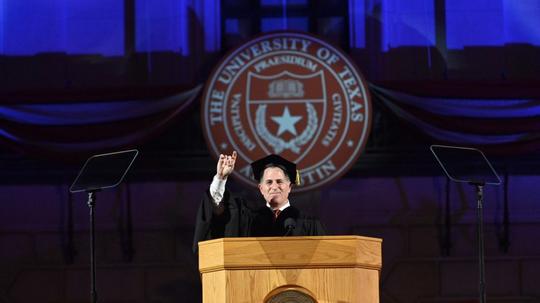
Who’s already there: Technology firms already make up a bulk of the largest employers in the city, including Dell, IBM, Samsung Austin Semiconductor and Apple, which is currently constructing a new $1 billion, 3 million-square-foot campus in the city. Elon Musk has also put the city firmly in his sights with Boring Co. and SpaceX reported to be planning offices in the area.
Recent transplants: Where to start? The list of Bay Area tech figures that have packed their bags for Austin is long and seemingly grows by the week. There’s investors like 8VC founder Joe Lonsdale, tech executives like Dropbox CEO Drew Houston and companies big and small, ranging from Fortune 1000 firms like Oracle and Digital Realty Trust to startups like NinjaRMM and Harmonate.
Innovation centers: While Bay Area cheerleaders often point to the presence of top-tier educational institutions, Austin holds its own on that front with UT Austin, one of the best public universities in the world. The city is also home to the South by Southwest conference, which has acted as a hub for creativity, technology and culture for more than 30 years.
Median house price: Per the Austin Board of Realtors, median home prices in the city are around $482,000, which is a steal when compared to seven-figure prices in the Bay Area. The same holds true for renters. According to Zumper, median one-bedroom rents in Austin are around $1,300, less than half the San Francisco figure. The not so good news is that rising housing prices mean that by the end of the year Austin metro’s housing market will be the least affordable outside of California, according to a report from Zillow.
The places to be: Downtown is the city’s top-tier neighborhood for business activity, and a host of coworking spaces mean that startups can feel at home among the skyscrapers and high-rise condos. For those looking for something a little less corporate, East Austin’s more bohemian vibe could be just the right fit with its trendy food trucks, hip bars and creative office spaces. North Austin, including the mixed-use development the Domain, is also a rising technology center and a trendy magnet for the tech set.
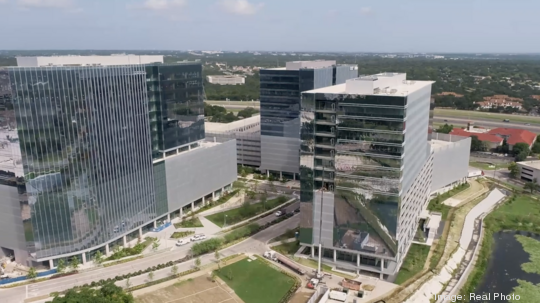
Taxes: What taxes? At least when it comes to state income taxes, there aren’t any. That has been a major selling point to bring businesses and executives to the state. On the other hand the absence of Prop. 13 protections means that property taxes in Texas are some of the highest in the country, with annual median property taxes in Austin sitting at around $6,600.
The pitch: “It’s good to feel wanted.” The California business community has long griped about the costs of doing business and the general sentiment that government fails to address its concerns. Tech companies specifically are facing an increasing “techlash,” blamed for a range of social ills. Wouldn’t you like to face open arms rather than clenched fists?
Rev up: Capital Factory, an accelerator and incubator that brands itself “the center of gravity for entrepreneurs in Texas” offers mentoring, meetups and a coworking space, alongside a VC arm that invests in companies like Spipwell, Senseye and SubjectWell. It also houses the Center for Defense Innovation, a public-private partnership that links the military to startups and entrepreneurs.
Nickname: The city has been dubbed “Silicon Hills,” although most Austinites grimace at the reference. Here’s some of my suggestions for alternatives: “AustInnovate” and “Travis (Kalanick) County.” (Hey, I didn’t say they’d be good.)
— Kevin Truong
While Austin is the clear favorite in Bay Area tech circles, Dallas has plenty to boast about — and does so loudly and frequently. With reason: In the past six years, six Fortune 500 companies have moved their headquarters from California to Dallas-Fort Worth, with three coming from the Bay Area: Charles Schwab Corp., McKesson Corp. and Core-Mark Holding Co. Inc. In the tech sector, DFW’s wins include expansion offices for Uber and fintech Fundbox.
Start me up: The Dallas Regional Chamber is eager to point to Roofstock’s list of startup markets that ranked DFW at No. 5, based on analysis of Census data between 2014 and 2018. Roofstock’s report shows 10,731 startups created annually in Dallas-Fort Worth, with new jobs created annually coming in at 70,000 — or about 15% of all new jobs created in the region each year.
Major employers already there: While Austin can tout its big wins with Tesla, Apple and Oracle, the Dallas chamber likes to boast: “Here, every company is a tech company.” They point to corporate innovation centers in the region and rattle off companies with significant operations in Dallas-Fort Worth, including AT&T, Toyota North America, Match Group, Microsoft, Amazon, Texas Instruments, Sabre, Intuit and Salesforce. Plus numerous tech startups.
Tech icon: Mark Cuban. Need we say more?
The attraction for startups: Cuban shared in an email to the Dallas Business Journal: “We get the Fortune 500 companies to move here, and the entrepreneurs that create business to fit their ecosystems move here quietly and grow into major corporations. Smaller tech companies will find it far cheaper with a much more target-rich environment of customers.”
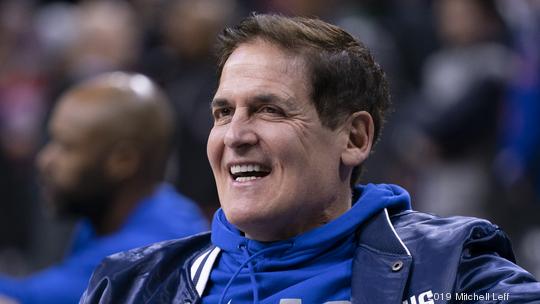
Never one to miss an opportunity: The Dallas chamber is hosting a large-scale hackathon, HackDFW, on Oct. 1-3, with in-person and virtual options. The chamber encourages Bay Area techies considering a move to Dallas to participate, as the region’s “best high-tech companies will be there posting challenges and looking for tech talent.”
Median house price: It was $270,629 in July. But one woman who moved from the Bay Area to Dallas said that figure is misleading. DFW homes are pricier in the city’s suburbs with strong schools, such as Plano, where the median home will yank $432,805 out of your wallet. Still a bargain by Bay Area standards.
Office rental rates: Around $30 to $50 a square foot in the core of Dallas (full service gross)
A great neighborhood for tech: Deep Ellum, which bills itself as a “Texas’ destination for arts, music culture and innovation since 1873.” Maybe that’s why Uber chose the neighborhood for its new shiny offices. Others sing the praises of Plano, at least for techies who appreciate that city’s office parks.
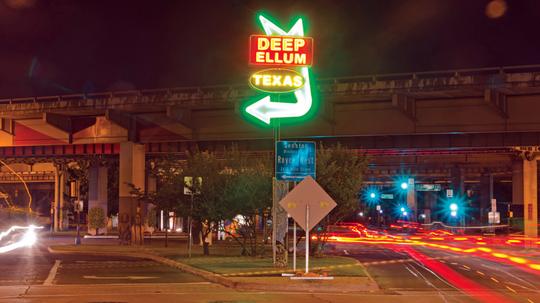
The hangouts: Southern Methodist University and the University of Texas at Dallas. Those wanting to grab a beer or coffee may want to circle back to Deep Ellum.
Taxes: No personal income tax is the big selling point for Dallas — and the rest of Texas.
Average temperatures: In January, lows and highs of 37 and 56. In July, 77 and 96.
Recommended reading: “Big, Hot, Cheap and Right: What America Can Learn from the Strange Genius of Texas” by Erica Grieder
Most important people to know: While the local tech billionaire is a known entity, others include Trey Bowles, chairman emeritus of the Dallas Entrepreneur Center and Bryan Chambers, vice president of ventures at Capital Factory.
Flights: No shortage of airlift here. American Airlines has the most daily nonstops from SFO and SJC to its hometown DFW hub. Looking for other nonstop options? United, Alaska, Southwest and Frontier also offer nonstops to DFW or Dallas Love Field from at least one of the Bay Area’s three major airports.
Incubator: The Capital Factory is a key player even though its physical site was shuttered in Dallas after Covid-19 hit.
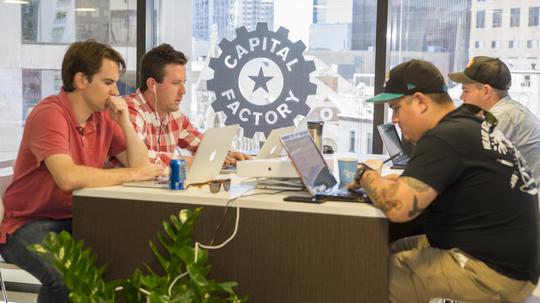
Nickname: The Metroplex
— Mark Calvey
Silicon Valley has traditionally regarded Miami’s place in the tech firmament (if they regarded it at all) as the equivalent of an annoying little brother: mouthy and minuscule. As little brothers tend to do, though, this one is growing up fast and starting to hit back. Hard.
By nearly any measure, tech in Miami and South Florida — “SoFlo”— remains a fraction of the size, scale, influence or consequence of Silicon Valley.
But if their in-ascendance tech community bears a growing resemblance to ours, it should: We are providing many of the raw materials in terms of a steady stream of people and companies moving to there from here.
Startup me up: Greater Miami led all Florida markets with more than 14,000 tech job postings at the end of June, according to a CompTIA analysis of Burning Glass Labor Technologies Insight data, an increase of 3,000 since March. Still, CBRE ranks Miami no higher than 37th for tech talent among the 50 largest American cities, trailing not just in-state neighbors Orlando and Tampa but ... Detroit. Ouch. On the other hand, StartupBlink takes a rosier view, ranking Miami’s startup ecosystem 31st in the world, just behind Atlanta and Denver and far ahead of all other Florida locations.
Recent transplants: Delian Asparouhov and his Founders Fund colleague Keith Rabois, investor David Blumberg, venture capitalist Jack Abraham and former Intuit chief executive officer Bill Harris headline a rapidly expanding roster of Bay Area tech figures who have recently decamped to Miami and now sing its praises.
Most important person to know: Miami Mayor Francis Suarez, best known here for his large billboard alongside US 101 at the start of the year: “Thinking of moving to Miami? DM me.” Young, telegenic and tech-savvy.
Hottest tech neighborhood: Buzzy, hip Wynwood is Miami’s analog to SoMa so, not surprisingly, it’s been a magnet for Bay Area transplants. Downtown Miami is under the radar as an emerging tech location, local observers say.
The scene: Freehold, a Wynwood complex of three bars, a cafe and a pizza parlor; The Oasis, an eating, drinking, retail and self-styled “creative paradise; Lagniappe House Wine Bar for the artier types.
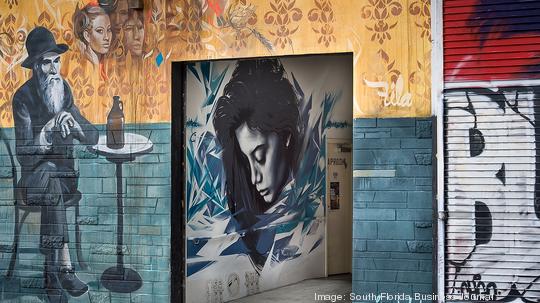
Taxes: There’s no state income tax. Florida does not have an income tax. Did we mention the absence of a state income tax? They do — a lot.
Tech icon: Manny Medina. After selling his Terremark data firm to Verizon for $1.4 billion, he now chairs eMerge Americas, Miami’s premier annual see-and-be-seen tech conference.
Sales pitch: “How can we help?” Adopted from what Suarez replied to a tweet by VC investor Asparouhov pondering (rhetorically, we think) if Silicon Valley could just be moved to South Florida.
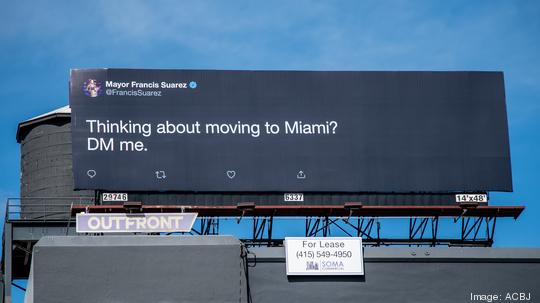
House prices: Miami may be into all things digital, but it’s missing a digit in Bay Area house-price terms at $414,625 in July, according to Zillow.
Getting there: Make friends with American Airlines, whose two daily flights each way are the only nonstops between SFO and MIA.
Leading incubator: 500 Startups — another San Francisco transplant.
Quotable: “Investors and tech executives love Miami, and the influx of new companies isn’t slowing down. But we’re still waiting to see if the spotlight on Miami tech will boost investments in local startups (which historically struggle to raise funding on par with ventures in other large metros) and lead to long-term job gains for residents,” said Ashley Portero, tech reporter at the South Florida Business Journal.
— Jim Gardner
You might know it as the capital of North Carolina. Or the birthplace of a bathroom bill. Or the seat of basketball royalty, with UNC, Duke and NC State combining for 13 NCAA championships.
Might as well add economic development powerhouse to that list. The three-county region has won 10,900 jobs since the beginning of 2020, at least on paper anyway, according to our sister paper, the Triangle Business Journal. And many of them didn’t come cheap: The state hasn’t been shy about giving incentives to lure companies from other states and keep the ones it’s already got.
The region is most well known for Research Triangle Park (RTP), a 7,000-acre campus established in 1959 between Raleigh and Durham near the airport. It is home to more than 300 companies.
Who’s there: The biggest players are in the life sciences space and the software game. RedHat (now owned by IBM) and Citrix both have buildings downtown. And Fortnite maker Epic Games is based in Cary, a suburb.
Median house price: $360,891, per Zillow, but take note: Prices are up 20% and inventory in close-in locations is low.
Taxes: North Carolina has a flat tax — you pay 5.2% regardless of how much you make. Its corporate tax rate? 2.5%. Its gross receipts tax? 8%.
Most important person to know: Looking for a connection, a mentor or some money? Look no further than Scot Wingo, the former CEO of ChannelAdvisor who’s now an angel investor and runs Get Spiffy.
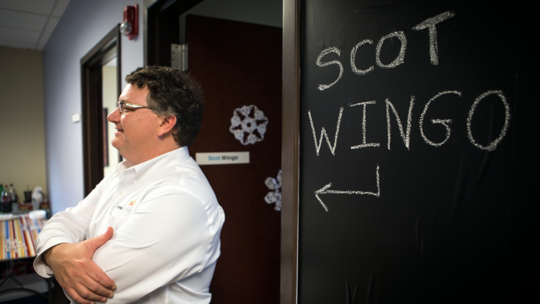
The pitch: It’s all about talent, baby — and then it’s straight to quality of life and cost of living. The effort is centralized with a statewide public-private partnership, the Economic Development Partnership of North Carolina. It does the legwork and then the North Department of Commerce enters to picture to work on incentive packages, often tied to job creation.
Successes: You might as well sit down and stay a while: It’s another week, another victory for the Triangle. Google announced earlier this year that it’s putting a 1,000-job engineering hub in Durham. That would make anyone’s year. But that wasn’t even the biggest get this year: Apple picked Research Triangle Park for a 3,000-job campus, thanks in part to $845.5 million, or $282,000 a job, in incentives. Yep, Google and Apple. You’ve probably heard of them.
The one that got away: Raleigh was a late-game contender for HQ2, according to a book published this year, but Amazon staff was overruled by then-CEO Jeff Bezos. (You know what they say about CEOs and site selection.)
Recent transplants: San Francisco’s own Smart Wires announced it was moving its headquarters to Durham this summer. Biotechs like Gilead, Grail, Invitae and Adverum Biotechnologies have operations in region.
Getting there: United has resumed nonstop service six times a week. The biggest knock against RDU is lack of international flights. Some companies have even gone elsewhere because there’s no direct China connection.
Notable incubators: American Underground in Durham or Raleigh Founded
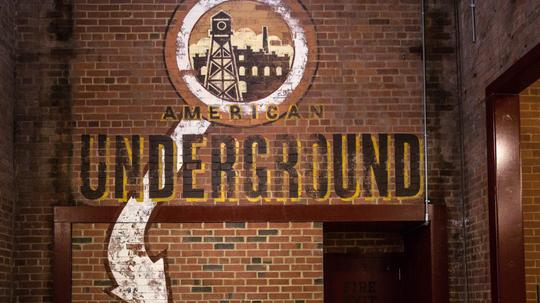
Best neighborhoods for tech: Downtown Raleigh and Durham — both home to burgeoning brewery scenes — are hot for startups and entrepreneurs. New hip apartment buildings are popping all over both cities, and you might even find some entrepreneurs on the pedal-powered Trolley Pub. Be warned: RTP is not your typical tree-shrouded business park — there are trails and lakes and parking lots — but also be prepared: It’s suburbia incarnate.
The hangouts: Looking for the young tech crowd? Head down to the Starbucks on Paige Road in Durham or Trophy Brewing in Raleigh. You’ll find the more well-heeled execs at Herons, the restaurant at the Umstead Hotel & Spa in Cary, not far from RTP.
— Douglas Fruehling
Music may come to mind when thinking of Nashville: After all, its nickname is Music City, and it’s home to the Grand Ole Opry. But today, this Tennessee city is tuning up as one of the most attractive destinations for the tech industry, raising its profile to rank among some of the nation’s largest innovation clusters. Nashville’s magnetic charge has also been pulling at Bay Area companies in recent times, as evidenced by Oracle’s plans to bring 8,500 jobs and a $1.2 billion real estate investment to the area, as well as a slew of other companies that have either relocated or invested into the city.
Start me up: StartupBlink Global Startup Ecosystem ranks Nashville at No. 25 in the U.S., up three spots from last year, and No. 63 globally, jumping 11 spots since 2020. The most popular industries in Nashville for startups are health care, social and leisure and marketing and sales.
Major employers: San Francisco companies Lyft, Eventbrite, Postmates, KeepTruckin, Pilot.com, GoCheck Kids and Greenlight Medical have either opened offices or moved their headquarters to the greater metropolitan area. Oracle plans to begin construction on a 1.2-million-square-foot campus along the East Bank of the Cumberland River, while Amazon has hired more than 2,000 employees for its downtown Nashville office hub, with some of them starting to populate the company’s new high-rise over the summer. Then there’s Facebook, which chose to build a $715 million data center in Gallatin — just outside Nashville — requiring 1,200 construction jobs and 140 workers once it’s open, in exchange for 20 years of tax breaks.
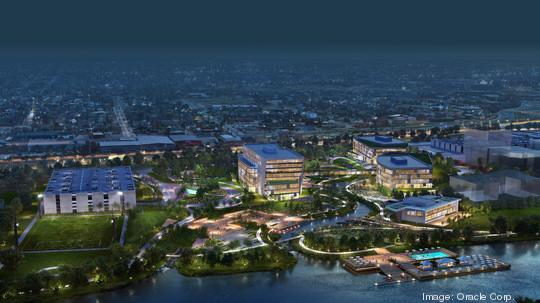
Taxes: Tennessee has no income tax on salaries and wages. A 1% flat-rate tax on all income earned from interest and dividends was imposed in 2020 and repealed in 2021. For business, the Tennessee Franchise and Excise tax has two levels: 6.5% excise tax on the net earnings of the entity, and $0.25 per $100 based on its fixed assets or equity, whichever is greater. The state also eliminated its inheritance tax in 2016.
Office rental rates: The average rental rate for office space is $25.62 per square foot, according to PropertyShark. Office rent per year ranges from $12 to $44 per square foot.
Median house price: The median listing price for a home in Nashville as of June was $385,000, according to Realtor.com, with the median price per square foot being $235. Edgehill is the most expensive neighborhood with a median listing price of $830,000. Overall, median single-family home sales prices in Nashville have risen more than 15% year over year. Reports now indicate that buyers need to commit on the spot with an all-cash offer and waive the inspection if they want to beat out competitors. Sound familiar?
Neighborhoods to watch: Wedgewood-Houston is attracting the creative class while the Gulch, once filled with abandoned warehouses and factory buildings, has been transformed with new luxury apartments, hotels, restaurants and clubs.
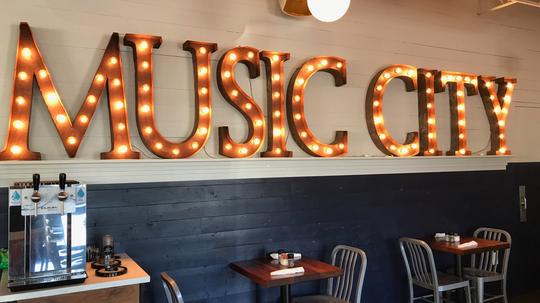
The pitch: “There’s a lot of talk about movement from technology regions in other parts of the country, specifically California, into our state,” Tennessee Gov. Bill Lee said in June 2019. “There’s a reason for that: It’s because we are building the technology workforce, we are building the infrastructure for technology, but we also just have a way of life here that is attractive to people and they’re figuring it out more and more.”
Flights: United has nonstops from SFO as does Southwest from SJC and OAK, typically daily. A good price for the one-way six-hour flight is anywhere from $80-$140, while the round-trip price averages just over $350, according to Kayak.com.
Notable incubators: Launch Tennessee, Nashville Business Incubation Center, Jumpstart Foundry and Accelerator Virtual Business Immersion
Quote: “On the employer side, it’s an intense competition for talent — more than people remember it being in years past. I think as we’ve grown, many of the cost-of-living advantages we held over other cities have started to dwindle.” — Nashville Business Journal’s senior reporter Adam Sichko, who’s covered both real estate and tech in his seven years there.
— Ted Andersen



